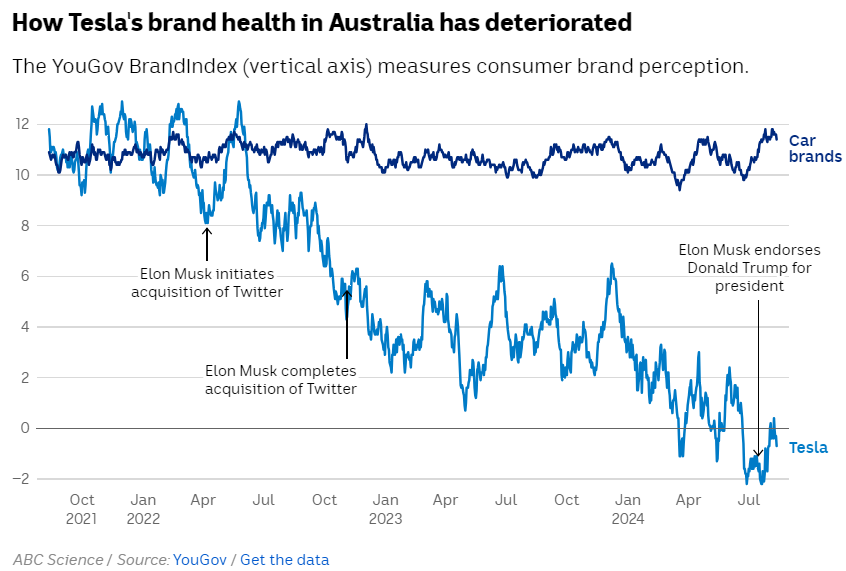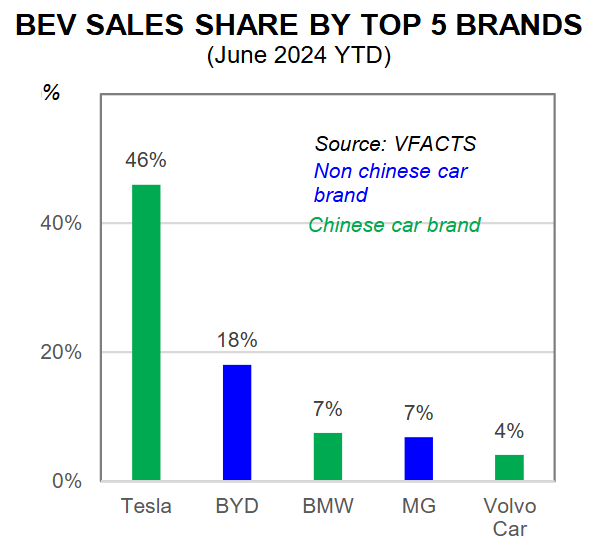Back in June, 7News reported that a ‘graveyard’ of unsold Tesla cars had piled up in Port Melbourne:
“All of a sudden we’ve got a huge backlog of Teslas that aren’t moving”, Peter Anderson from the Victorian Transport Association told 7News.
“Teslas usually come into this country pre-sold. These ones aren’t, they’re sitting here”.
The latest new car sales figures from the Federal Chamber of Automotive Industries (FCAI) showed that sales of battery electric vehicles – with the inclusion of the reported Tesla (2592) and Polestar (103) results – were 6.6% of the market, down from 7.0% in 2023.
On Thursday, The ABC reported that “Tesla’s reputation in Australia is tanking, with sales down and some buyers turned off by Elon Musk”.
“Data provided exclusively to the ABC shows Tesla’s “brand health” in Australia has steadily worsened over the past two years and is now in negative territory”.

“EV groups say Tesla CEO Elon Musk has alienated potential buyers with his inflammatory rhetoric and support for known climate denier Donald Trump”…
“The EV-buying demographic is shifting from early adopters who are generally loyal to Tesla to a broader segment who can access a wider range of non-Tesla models”.
Things are about to get worse for Tesla in Australia, with more low-cost models expected to be introduced into the market.
Tesla is currently the top battery electric seller in the nation, followed by China’s BYD in second and MG in equal third place:

However, Chinese BEV models are the cheapest, offering the lowest upfront price across the SUV and non-SUV segments.
For years Tesla was one of the only EV brands available to Australians and enjoyed a clear technological advantage.
However, the high-income early-adopter market is becoming saturated and Tesla is competing with dozens of EV-selling brands, including cheaper Chinese models.
As a result, the Tesla bubble is bursting.
As an aside, check out John Cadogan’s analysis of the carbon emissions from battery electric vehicles. It turns out they aren’t as “green” as claimed.

